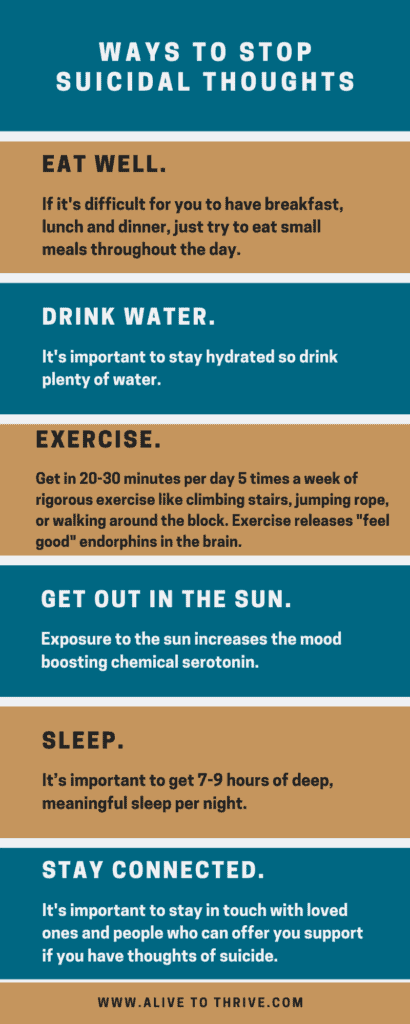
Navigating the Depth of Boys’ Emotions
Teaching boys to embrace, and name their emotions, is an important part of raising godly young men.

If you’re having suicidal thoughts because of coronavirus fears, help is available.
As the Coronavirus outbreak continues to make its way through different parts of the world, including right here in the United States, some people are finding themselves thinking suicidal thoughts. You may even hear some dark and extreme reports of people dying by suicide. A couple of those stories include a father of three in India who, mistakenly thinking he had the virus, snuck out in the middle of the night and hung himself. Also, a Chinese student living in Saudi Arabia threw himself out a window and died while under quarantine, because officials suspected he had the virus.
Counselors say that these extreme cases, in all likelihood, brought out something that was already there. These men gave into the despair that many are feeling as the outbreak continues.
With schools closed in some parts of the U.S., many young people may be feeling the same sense of loss and isolation as they remain closed off from friends and classmates. The feelings may grow with favorite restaurants, activity sites, and even churches closing their doors in efforts to stall the spread of the virus.
People losing their jobs, or having to work from home alone during this time of uncertainty may also be having suicidal thoughts. As well as those who fear they have the coronavirus, or are facing financial fallout from the cratering economy.
According to information from Focus on the Family’s Alive to Thrive program, these thoughts of suicide usually don’t come out of nowhere. Often, someone who thinks suicidal thoughts does so based on pre-existing conditions. There may be an underlying attachment disorder going as far back as infancy. Or depression related to childhood exposure to traumatic incidents such as abuse, neglect or parental mental illness.
This reality is something that Focus on the Family’s Senior Director of Counseling Services Geremy Keeton wants to help you understand. He says that times of greater stress will often expose our previously unseen tendencies and cracks in the foundation of our mental or spiritual health. The Coronavirus outbreak is causing serious stress for a lot of people. But Geremy offers hope:
“While our personal fleshly weaknesses can cause cracks in the foundation, the incredible thing is that as believers we stand on THE firm foundation of Jesus Christ,” Geremy says. “And we have something beyond ourselves to rely on.”
Suicidal thoughts sometimes turn disastrous, but there can be a silver lining when you tell someone you’re having those thoughts. Doing so may bring up discussions that should have been taking place all along, highlighting issues related to anxiety, stress and feeling overwhelmed.
Geremy says it’s natural for weaknesses to show up under pressure. But the most important thing is to talk about the underlying issues. “Talk it out, so you don’t have to act it out,” he says.
If you find that thoughts of suicide are plaguing your mind, it’s important for you to get help immediately. Geremy lists 5 ways to find help and address these thoughts.

If you’re not in crisis (meaning there is no immediate thought to take your own life), but you face dark thoughts regularly, Focus on the Family’s Director of Parenting Joannie DeBrito says it’s important to maintain good mental health. Do something for your body, mind and spirit every day that is healthy and helps you move in the direction you want to go. “Self-care, self-care, self care,” Joannie says. “The neglect of self-care will make nearly any mental health issue worse.”
Doing the items above may help to decrease symptoms of depression and suicidal thoughts. In the vast majority of cases, doing what’s on that list will encourage better health. And if financial woes are part of the problem, all of those items cost little to no money.
After a young person dies by suicide, people are often shocked and wonder why no one around them knew they were suicidal. Joannie explains that this may be related to two areas of normal development in youth: invincibility and impulsivity. These two aspects of development can be good things that allow young people to be adventurous and learn new things. But they may work against someone who is depressed and struggling with suicidal thoughts. If invincibility and impulsivity challenge a young person to do unhealthy things, that can be dangerous.
Counselors see this when they ask a young person who has tried to die by suicide but has survived, why he tried to take his own life. The answer is often, “I have no idea. I just decided to do it at that moment,” thus indicating impulsivity. Counselors also hear “I’m so glad I didn’t die. I didn’t really believe I was going to die,” which shows invincibility.
For pastors and those who interact with pre-teens, teens and young adults who may be suicidal during this outbreak, Joannie encourages you to visit Alive to Thrive. You will find plenty of resources to help kids who may be having thoughts of suicide.
If you’re having thoughts of suicide, Geremy leaves you with some important words: This too will pass. Most difficult circumstances in life eventually pass, and medical health experts are saying the same about the coronavirus crisis. If suicidal thoughts are motivated by this crisis, remember that this is a temporary crisis. Unfortunately, death by suicide is a permanent condition.
If you’re simply struggling with thoughts that come and go, keep in mind that they are just thoughts. Still, you should talk them out with someone who provides trusted support. Geremy and Joannie both recommend professional counseling. During this time, many professionals are able to meet with you by phone or even online. You can get the help you need.
The story you might see of death by suicide in the news doesn’t have to become your story. There is always hope.
“While these extreme stories are tragic, you need not have extreme fear,” Geremy says. “Don’t let these stories make you feel darkness, because you have hope in your heart if you have Jesus Christ. And He is available to all – don’t go it alone. Reach out.”
© 2020 by Focus on the Family. All rights reserved.